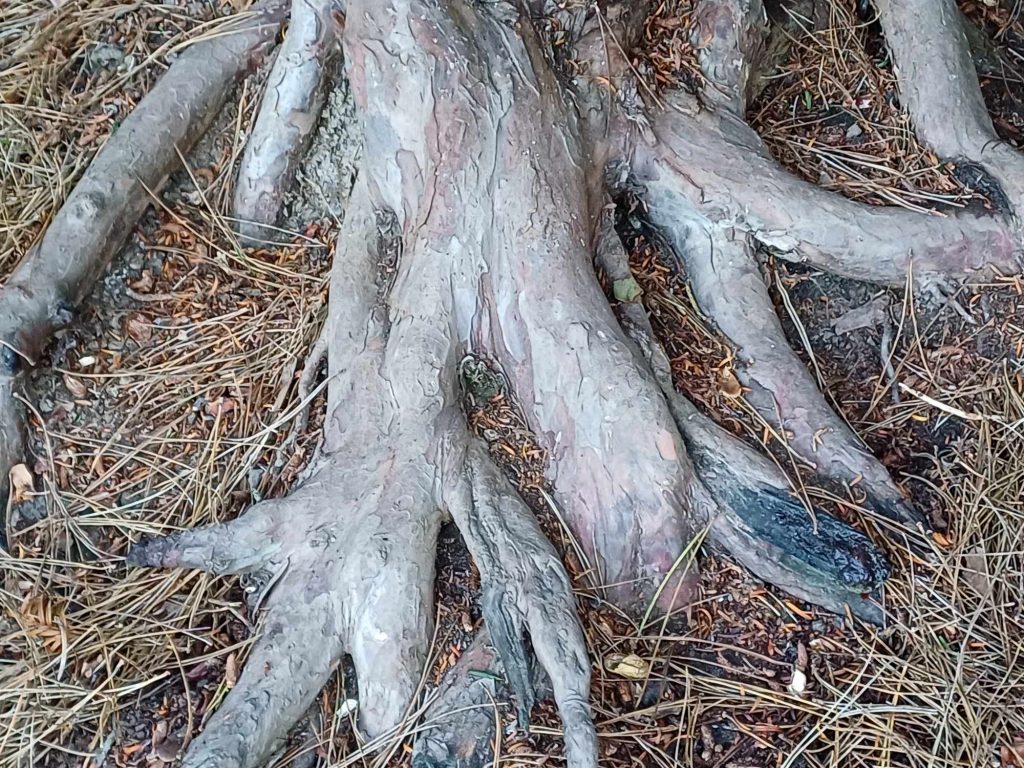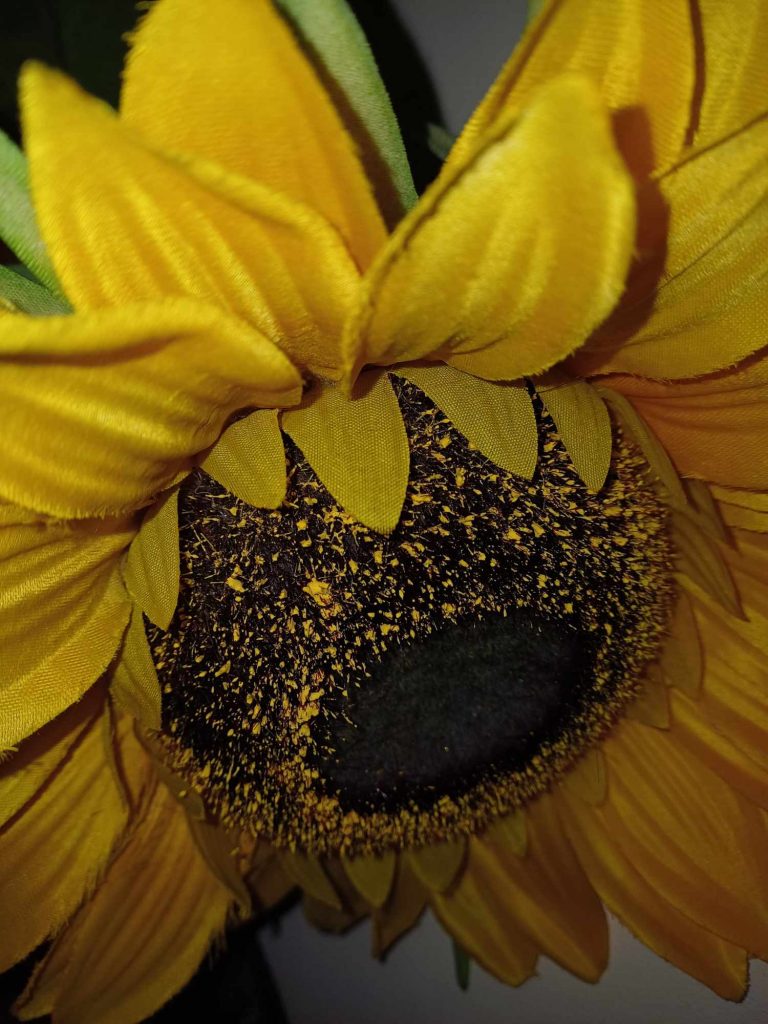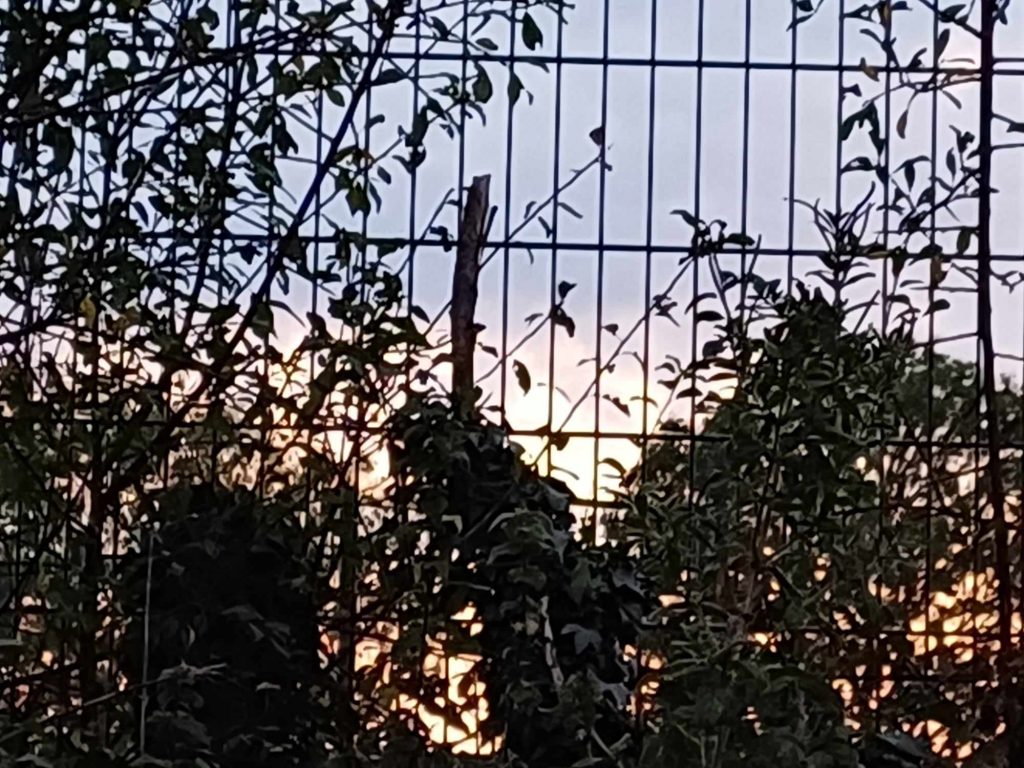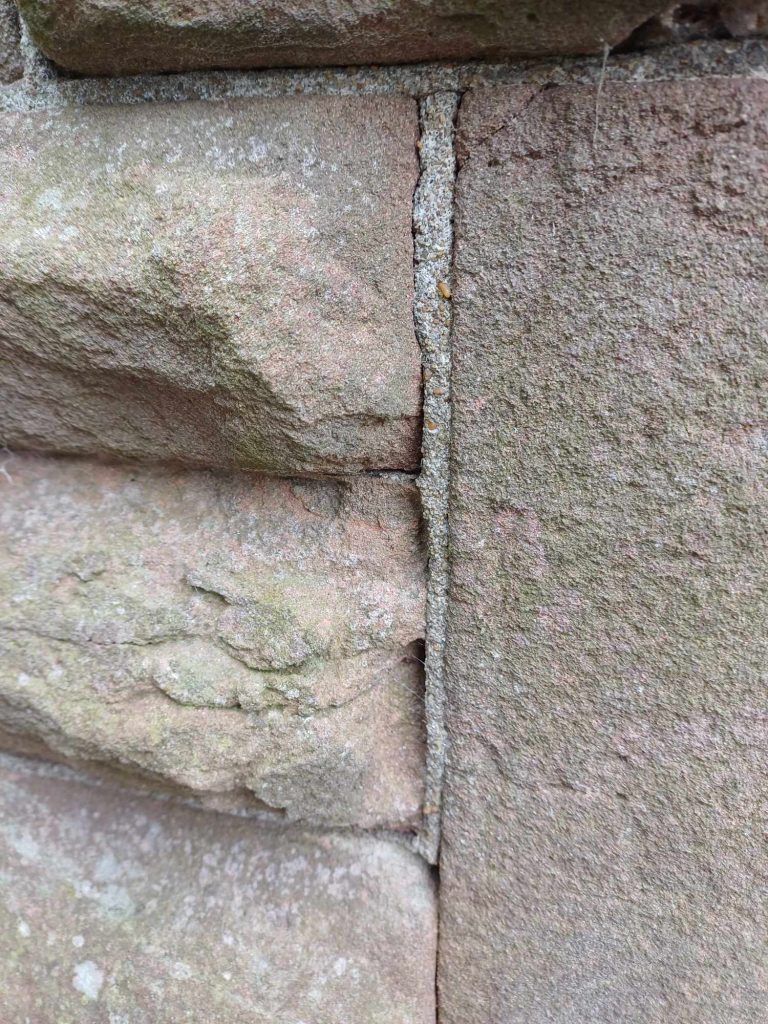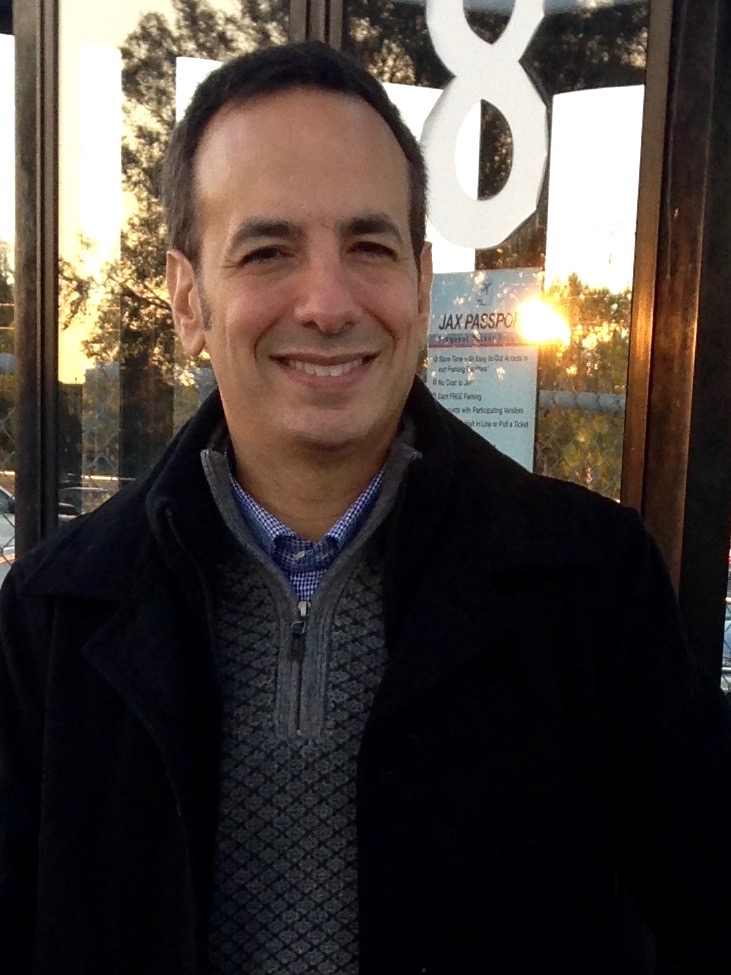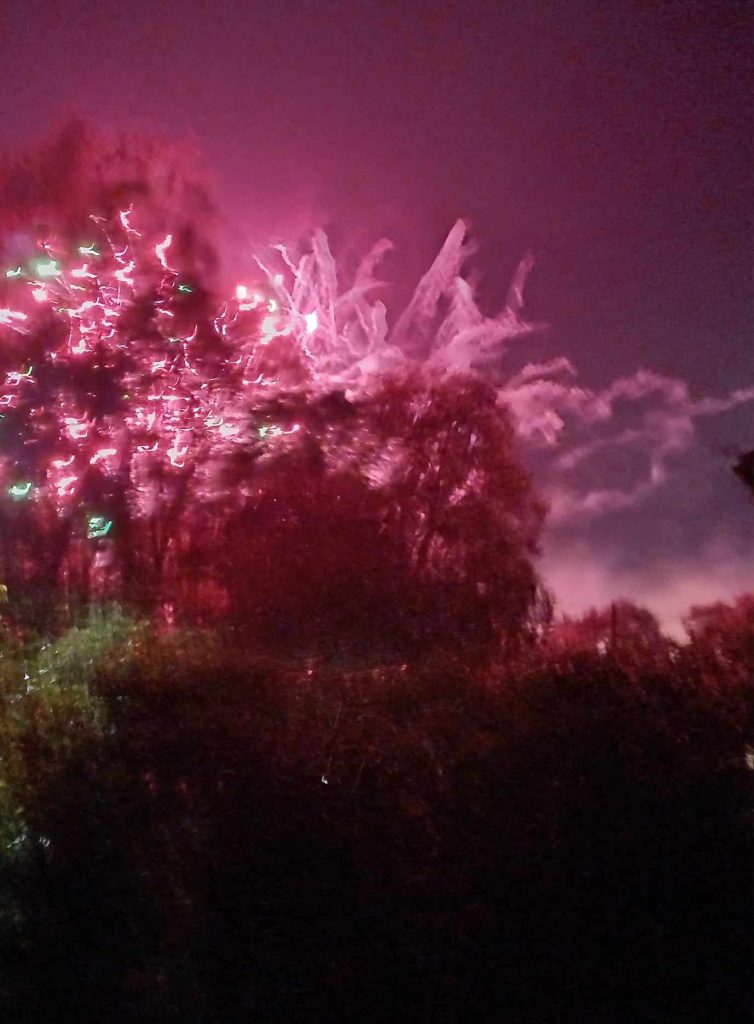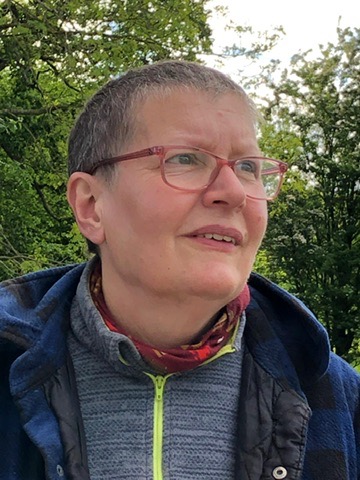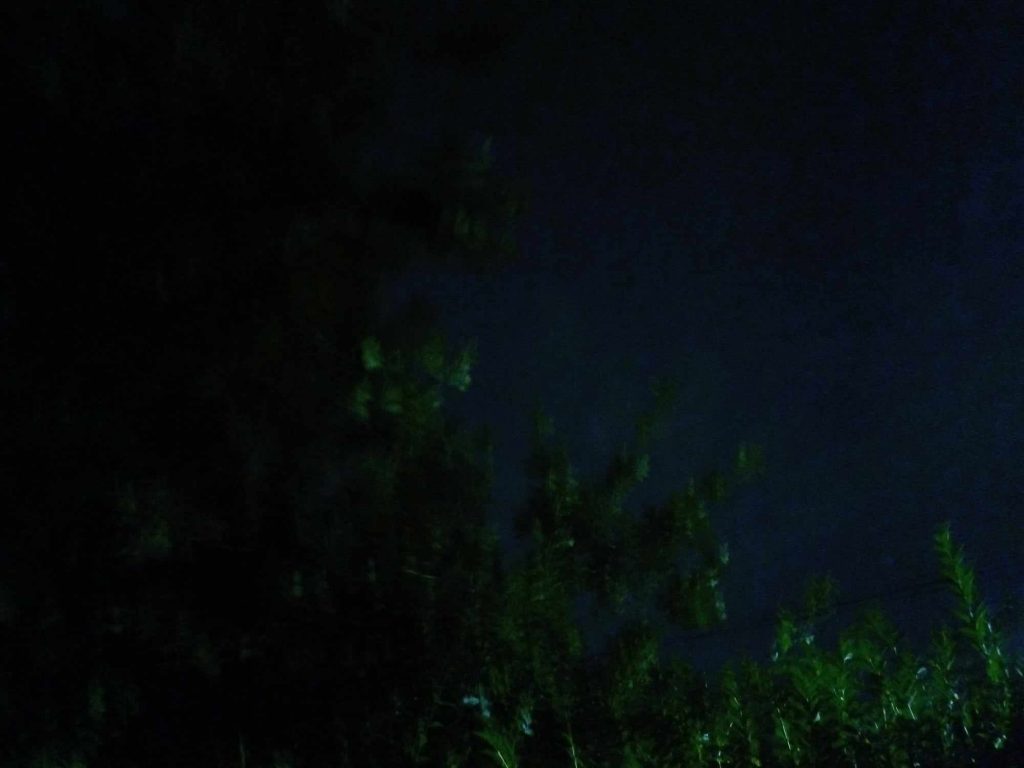
I was definitely feeling pleased with myself. I made it to the private clinic without the usual escorts, for a check-up that would tell me how to deal with my upcoming departmental physical. It was a rare treat to be alone for a few minutes without any responsibility. There was a knock on the door. I called: “Come in,” and a pretty, young girl entered.
“Good morning, sir. I’m Eva, from transport. These men are here to take you to x-ray.”
Two identical looking men, wearing blue jumpsuits, pushing a stretcher, came in. The only problem was that I wasn’t scheduled for x-ray. I lifted the sheet, grabbed my weapon, shot both of them, and they slumped to the floor. Eva froze, waiting for the lunatic to shoot her. Since she couldn’t run or hide, she tried to make herself invisible. Smart girl.
“Eva,” I said gently.
“Yes, sir,” she quavered.
I pointed and said:
“Give me that tray, please.”
She cautiously brought the tray. I put my weapon on it and told her to put it on the counter. She quickly rejected trying to use it on me, since she had absolutely no idea what it was, or how to use it. Smart girl.
“Give me your cell phone, please.”
She did. I called headquarters, apprised them of the situation, then waited for the police. A minute later a cop came in, weapon drawn. ready for anything. He quickly eyed the two bodies, the girl, then me. I read his nameplate.
“Sergeant Jefferson. Please search me, so you’ll know I’m unarmed.”
He approached carefully, as I slowly pulled down the sheet. He was thorough, even checking under the pillow and bed.
“What happened here?” he demanded.
“You’ll get a phone call in 30 seconds that will start a process. In the meantime, don’t let anyone else in, and if you can’t stop them, make sure they don’t see my weapon.”
He started to ask me something, but his phone rang.
“Yes, sir. Yes, sir. I understand, sir.” He disconnected and looked at me. “Homicide is going to be pissed when they can’t get in.”
“Sergeant Jefferson.”
“Yes, sir?”
“This is not an ordinary homicide.”
We waited quietly. Two minutes later the door opened and Parker and Lindner, my executive assistants/bodyguards, rushed in. Parker took in the scene at a glance.
“We have 10 agents deployed, air cover and a team is searching the building. A support team will arrive in eight minutes… Did you really have to go off on your own, sir?”
I ignored her and said:
“This is Sergeant Jefferson and Eva. They have been exemplary. They will be offered opportunities.”
“Yes, sir,” she replied. “Can we move to a secure location, so the containment team can get to work?”
“Sergeant Jefferson.”
“Yes, sir?”
“Is there anyone you have to contact until tomorrow?”
“Only my watch commander.”
“He, your Lieutenant and precinct Captain have been notified that you are temporarily assigned to a federal agency. Eva. Do you have to notify anyone?”
“I live with my sick father. I have to make dinner for him.”
“What if we send some good, Spanish speaking people to take care of him tonight?”
“That would be wonderful.”
“Then call him and say you’re spending the night with a girl friend. Take care of it, Lindy.”:
Lindner made a few quick calls, then said:
“Ready to go, sir.”
As we headed for the door, Jefferson asked:
“They aren’t human, are they?”
I just looked at him and didn’t reply, as our team guided us to waiting SUVs.
We raced, with helicopter cover, to a campus just outside Washington, D.C., and entered a special building through a series of well-protected tunnels. Parker arranged comfortable quarters for Sergeant Jefferson and Eva, told them to use the house phone if they needed anything, then informed them they would be interviewed at 7:30 a.m. Then Parker and Lindner joined me in my office.
“We have two questions to consider,” I said. “How did they find me and why didn’t they send a hit squad?”
Logical Lindy stated.
“You didn’t tell anyone you were going, so x number of people may have seen you leave the campus. I’ll check anyone who might have seen you go. We may be under observation. You may have been noticed in transit, or entering the clinic.” He looked at me and Parker “Have I omitted any possibilities?”
I couldn’t think of any, so I shook my head no, then nodded to Parker.
“The only thing that makes sense,” she said thoughtfully, “is that they didn’t have time to muster a strike force and took a chance on a simple snatch.”
I couldn’t think of a better explanation, looked at Lindner, who nodded agreement with Parker.
“Alright,” I mused. “We obviously have some work to do.”
“May I make a request, sir?” Parker asked. I knew what was coming, but nodded ‘yes’.
“Please don’t go anywhere again without us,” she urged. “We’ll close our eyes no matter what you do, we’ll look the other way, or oblige you any way we can. Let us do our job.”
We all knew it was more than a job, so I agreed.
“Shall we debrief you now, sir?” Lindner asked.
“Let’s do it after we debrief Eva and Jefferson.”
“Who first?” Parker asked.
“Eva. She was the eyewitness. Jefferson arrived after it was over. Be aware, I’d like to recruit both of them.”
“Eva’s a kid,” Parker protested.
“You’ll change your mind once you hear her account of the incident. Now. How about some dinner. I’m starved.”
When Eva entered the conference room the next morning, if she was intimidated by the people at the table, the video cameras and other recording devices, she didn’t show it.
Parker said crisply. “Are you ready?” Eva nodded. “Then please tell us everything that happened yesterday afternoon.”
She took a deep breath. “My supervisor at transport told me to take the two transporters to room 502 and bring the patient to x-ray. The two men were wearing some kind of blue worksuits, like plumbers or something. They looked a little weird…”
“In what way?” An Admiral asked.
“They looked alike, but odd.”
“Go on,” Parker said.
“I led them to the elevator, we went to the room, I knocked and a man said: ‘Come in’. I said: ‘I’m Eva, from transport and we were here to take you to x-ray’. The two men came in. The man on the bed looked at them, pulled out some kind of gun and shot them. I had no place to run or hide, so I made myself invisible and hoped the madman wouldn’t shoot me. Then he told me gently to bring him a tray and he put the gun on it and told me to put it on the counter. I knew he wasn’t going to shoot me, so I relaxed. Then he asked for my cell phone, which I gave him. He made a call, then the cop came in.”
“Good, Eva,” Parker said. “We’ll stop here for now, but we’ll talk to you again in an hour.” Parker signaled an agent. “Take Eva to breakfast, please.”
When she left, the group discussed her statement and agreed she handled an extremely challenging situation with exceptional poise.
“What do you think, sir?” Parker asked me.
“We’ll discuss that after you debrief me. Now let’s have Sergeant Jefferson.”
An aide brought Jefferson in and I saw him quickly scan the room, noting the high-ranking military officers and the cameras.
“Good morning, Sergeant Jefferson,” Parker said. “Will you please tell us aobut your response yesterday.”
“I was passing the clinic in my patrol car when I got a report of some kind of disturbance on the 5th floor. After a brief search I found the room, drew my pistol and entered cautiously. There were two bodies on the floor, a girl was standing in the corner and a man in bed said: ‘Come search me. Sergeant Jefferson, so you’ll know I’m unarmed’. I approached carefully, made sure there were no weapons, and he said: ‘You’ll get a phone call in 30 seconds that will tell you what to do.’ I saw a strange weapon on the counter, but before I could look closer, he said: ‘Don’t let anyone else in the room. If they do come in, do not let them see the weapon’. Just then my phone rang, my Captain instructed me to cooperate with the agency taking charge and disconnected. I told the man: ‘Homicide is going to be pissed’. He said: ‘This is not an ordinary homicide, Sergeant Jefferson’. Then two agents came in and took charge.”
“Thank you, Sergeant Jefferson,” Parker said. “We’ll talk to you again in an hour.” She signaled an aide to lead him out and he turned to me.
“Question, sir?”
“Of course,” I replied.
“Will I be allowed to leave?”
“Certainly. You’re not a prisoner. If you wish, you can go after the next meeting. However. You might want to talk to me before you go.”
“Thank you, sir,” and the aide led him out.
Parker looked at me quizzically, and I said:
“We want to hear their opinion and perception of what happened. Then we’ll analyze the incident.”
We listened to Sergeant Jefferson’s and Eva’s account of what they thought happened. They were thorough and clear on what they did and didn’t know. I met with them, one at a time, Jefferson first, Parker and Lindner sitting in as I reviewed his record.
“You’ve been on the force for five years, two years of army service before that. You have several commendations, one for a shoot-out in a deli that saved civilian lives. You are respected by your superiors, especially your watch commander. You are going to night school for a law degree. I offer you the following choices: You can return to your precinct with commendations that will put you on a fast promotion track. You can join our agency and we will train you in counterterrorism and other skills, and fast track you for a law degree in the area of your specialty. You would be working for a clandestine government agency, with many responsibilities and benefits.”
“Do I have to decide now, sir?”
“No. We’ll give you a contact number if you opt to join us. However. There is one stipulation. You cannot discuss or tell anyone about the events of the last two days, or mention the agency, under any circumstances.”
“What if my watch commander asks what I’ve been doing?”
“Your chain of command has been informed you helped federal agents subdue two men who attempted to kidnap a government witness. Parker will give you an outline of the incident that will satisfy any inquiries. Lindner will arrange to have you driven home, or to your precinct. Good luck, Sergeant Jefferson.”
Thank you, sir. One more question?”
I nodded and he asked:
“What kind of weapon was that?”
I just grinned and Lindner summoned an aide, who led Jefferson out.
“What do you think, sir?” Parker asked. “Will he be back?”
“We’ll hear from him tomorrow. Let’s see Eva.”
An aide brought her in and seated her.
I nodded, then reviewed her background.
“Eva Rodriguez, age 19, graduated from Woodrow Wilson High School, 4.0 grade average, ran track, scholarship offers, including one for track. Father became ill and you had to go to work at two low paying jobs. We can help you get a better job and arrange a medical policy to take care of your father. Or you can go to work for our agency, take special training, then attend college part-time in preparation for a medical career. We would provide assistance to your father while you were in training.” Before I could continue, she said:
“I would like to join your agency, sir.”
“Why?” Parker snapped.
“I know enough to realize something very important is going on and I would like to make a meaningful contribution. I also want the educational opportunity.”
“Lindy. Have someone drive Ms. Rodriguez home. Eva. You cannot discuss the events of the last two days with anyone, not even with your father. Unless you change your mind, a car will pick you up at 7:00 a.m, and take you to a training facility.”
“Thank you, sir,” and an aide led her out.
“She’s awfully young, sir,” Parker commented.
“She’s smart, tough, has good sense and good judgment. In her way, not unlike Jefferson. We’re facing a dangerous menace that we don’t understand and we seem to be learning everything the hard way. We need people who can rise to the challenge. As you both know, they don’t grow on trees. We have to find out what we’re confronting and need all the help we can get.”
Parker moved closer, recognizing a real opportunity to question me.
“Who do you think we’re facing, sir?”
“Looking at this logically,” I replied, which made Lindner grin, “there are two alternatives. Either a powerful cabal has made incredible scientific advances in producing some kind of android that can almost pass for human… Or there has been an alien incursion that for what purpose has not yet been determined.”
“Which theory do you favor, sir?” Lindner asked.
“There isn’t enough evidence to reach a conclusion, but I would prefer an earthly conspiracy, to an alien visitation… Do either of you have an alternative theory?”
They shook their heads and Lindner said:
“Better a human conspiracy. At least we’ll be able to figure out their motives.”
Gary Beck has spent most of his adult life as a theatre director and worked as an art dealer when he couldn’t earn a living in the theatre. He has also been a tennis pro, a ditch digger and a salvage diver. His original plays and translations of Moliere, Aristophanes and Sophocles have been produced Off Broadway. His poetry, fiction and essays have appeared in hundreds of literary magazines and his published books include 39 poetry collections, 14 novels, 4 short story collections, 1 collection of essays and 8 books of plays. Gary lives in New York City.
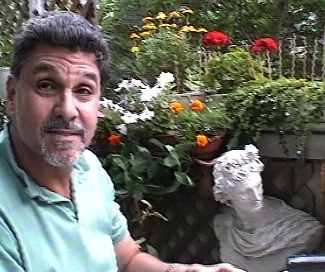
You can find more of Gary’s work here on Ink Pantry.

